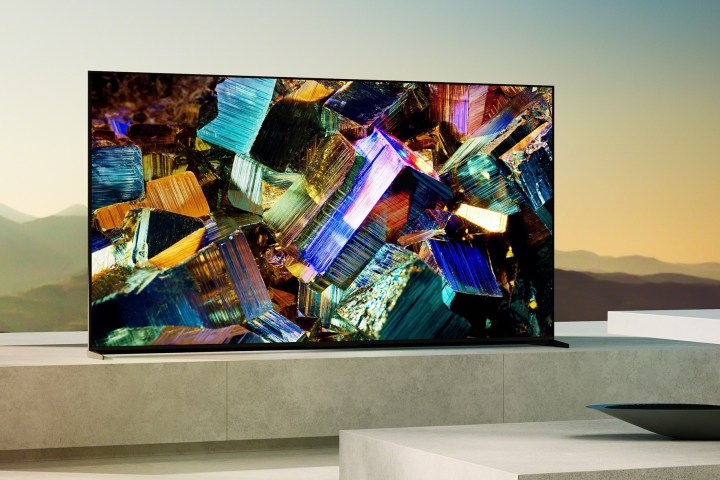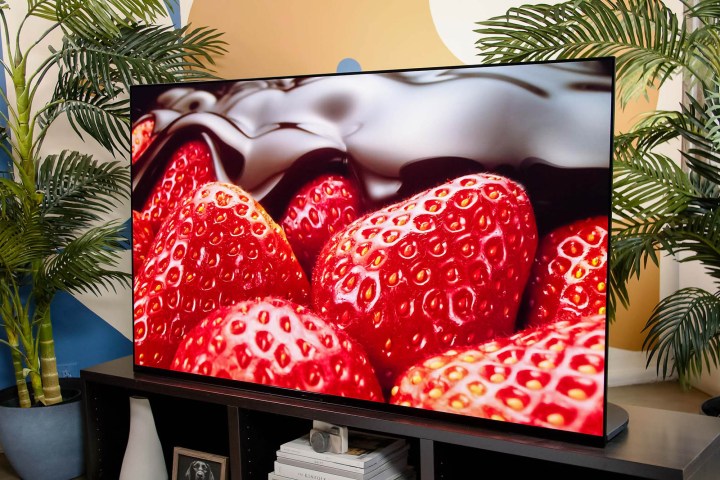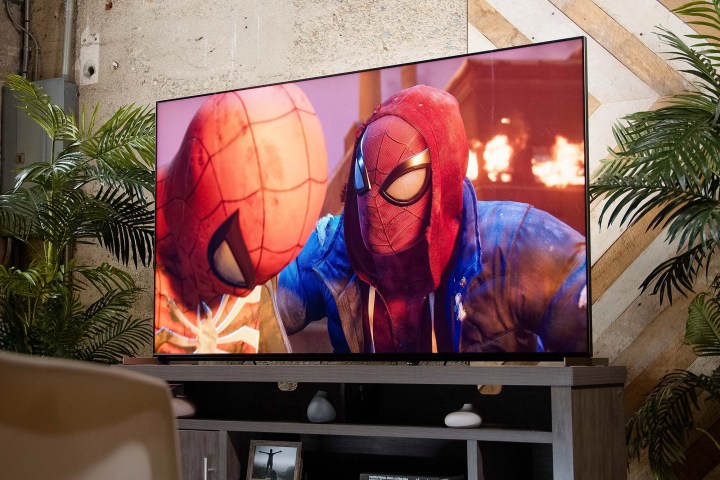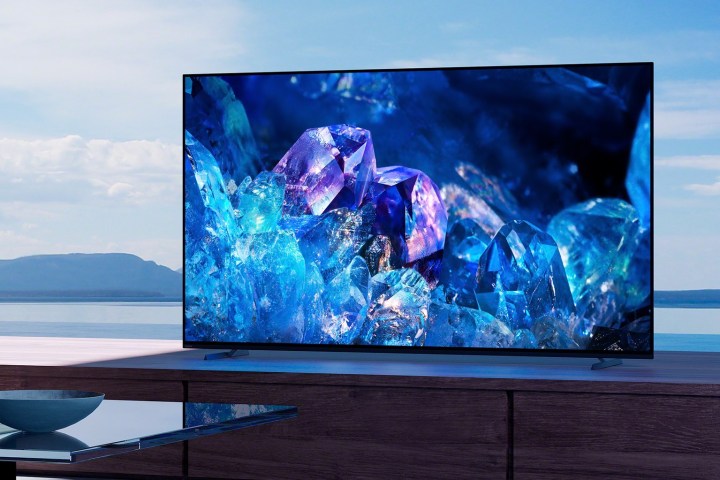Sony has finally announced the pricing on its 2022 lineup of Bravia TVs, including the A95K, which uses QD-OLED technology for its display. That TV starts at $3,000 for the 55-inch model, while the larger, 65-inch version has been priced at $4,000 — exactly where we expected these models to land based on the Sony Rewards points that Sony had listed for each model on its website. Here are all the pricing and availability details for Sony’s full range of 2022 Bravia 4K and 8K TVs:
Bravia Master XR Series Z9K 8K Mini LED TV

As Sony’s 8K flagship, the Z9K has all of the bells and whistles. It’s powered by Google TV, and supports HDMI 2.1, including eARC, variable refresh rate, auto low-latency mode, and 4K @ 120Hz. It comes with Sony’s new Bravia Cam for video chats, gesture recognition, and smart features like auto-dimming the TV when no one is in the room.
It has an ATSC 3.0 tuner for the latest generation of over-the-air TV tech, and supports Dolby Vision and Dolby Atmos through its built-in multi-speaker sound system.
- 85-inch: $10,000, available to pre-order in summer 2022
- 75-inch: $7,000, available to pre-order in summer 2022
Bravia Master XR Series A95K 4K OLED TV

Sony’s A95K isn’t just a new TV for 2022, it’s also home to an entirely new way of building TV displays. Its QD-OLED screen is a hybrid of traditional OLED tech and quantum dots, which should produce a brighter and more accurate image than any OLED TV so far. That’s more or less exactly what we discovered when we reviewed it earlier in 2022.
In addition to its revolutionary screen, the A95K is a 4K TV packed with top-tier tech like HDMI 2.1, HDMI-eARC, Dolby Vision, Dolby Atmos, and gamer-friendly features like variable refresh rate (VRR), and 4K @ 120Hz.
- 65-inch: $4,000, available to pre-order in June 2022
- 55-inch: $3,000, available to pre-order in June 2022
Bravia XR X95K 4K Mini LED TV

Sony’s mini-LED X95K might not be a QD-OLED TV, but thanks to the company’s XR Backlight Master Drive, it’s as close as you’ll get to OLED in a non-OLED TV. Like Sony’s other 2022 models, it has the latest HDMI 2.1 features including eARC, VRR, 4K @ 120Hz, and auto low-latency mode (ALLM). It runs on Google TV, which provides a variety of personalized streaming recommendations, and if you want to tune in to over-the-air TV, you’re future-proofed with ASTC 3.0 (NextGen TV) compatibility.
- 85-inch: $5,500, available to purchase now
- 75-inch: $3,800, available to purchase now
- 65-inch: $2,800, available to purchase now
Bravia Master XR Series A90K 4K OLED TV

If we didn’t now have Sony’s QD-OLED A95K, the A90K would be the company’s flagship OLED TV. And while we haven’t reviewed it yet, if history is any indication, it will be an outstanding performer. In addition to top-notch picture quality, you can expect all of the latest HDMI standards, Google TV, hands-free voice commands, Apple AirPlay 2, and a wealth of other features.
- 48-inch: $1,500, available to pre-order in June 2022
- 42-inch: $1,400, available to pre-order in July 2022

Sony’s A80K is the company’s most affordable OLED model, but that doesn’t mean it sacrifices on picture quality or features. It’s compatible with the new Bravia Cam, and is loaded with HDMI 2.1 eARC, VRR, ALLM, 4K @120Hz, Google TV, Apple AirPlay 2, and Chromecast Built-in.
- 77-inch: $3,800, available to pre-order in May 2022
- 65-inch: $2,500, available to pre-order in May 2022
- 55-inch: $2,000, available to pre-order in June 2022
Bravia XR X90K 4K LED TV

Sony’s most affordable Bravia model, the X90K, gets many of the same great features as the rest of the lineup, including Google TV, Apple AirPlay 2, HDMI 2.1 with eARC, VRR, ALLM, and 4K @120Hz, plus Dolby Vision, IMAX Enhanced, and Netflix Adaptive Calibrated Mode.
- 85-inch: $3,300, available to pre-order in May 2022
- 75-inch: $2,200, available to pre-order in June 2022
- 65-inch: $1,600, available to pre-order in May 2022
- 55-inch: $1,400, available to pre-order in May 2022



